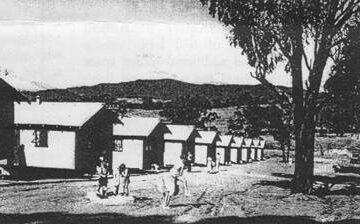Early life and education in the Netherlands
Professor Richard de Grijs was born in Amsterdam and grew up mainly in Friesland, living from the age of eight in Wolvega. He was the first in his family to attend university, pursuing a path that would eventually take him across four continents. He completed his MPhys (Doctorandus) in Physics and Astronomy at the University of Groningen in December 1992 and earned his PhD in Astrophysics there in October 1997. His doctoral thesis, Edge-on Disk Galaxies: A Structure Analysis in the Optical and Near-Infrared, reflects the depth of his early research.
During his PhD years, de Grijs already demonstrated a passion for public outreach and international engagement. He received the prestigious Van Swinderen public outreach award from the Royal Netherlands Physical Society for 1997–1998, and he was actively involved in international cooperation as a board member of SIW Internationale Vrijwilligersprojekten. These experiences set the tone for his lifelong commitment to combining research, education, and public service.
An international academic journey
Following his doctorate, de Grijs embarked on a truly global academic career. He undertook postdoctoral research at the University of Virginia (USA) and at the Institute of Astronomy, a department of Cambridge University (UK). In 2003, he joined the University of Sheffield in the UK as a permanent faculty member, developing his research on stellar populations and star clusters.
His career took another international turn in 2009 when he moved to Peking University in China to become a full professor at the Kavli Institute for Astronomy and Astrophysics. There, he also established the International Astronomical Union’s East Asian Office of Astronomy for Development, reflecting his growing leadership in global science. He served as an IAU Division President and worked extensively to support junior scientists from developing nations.
In March 2018, de Grijs moved to Australia to join Macquarie University in Sydney as Professor of Astrophysics. He also served as Associate Dean (Global Engagement) until 2021. Since July 2023, he has been Executive Director of the International Space Science Institute–Beijing (ISSI–BJ), fostering Indo-Pacific collaboration in space science.
Science, storytelling and public outreach
De Grijs’s commitment to public engagement is as strong as his academic profile. In 2023, he co-authored the first comprehensive biography of William Dawes, the First Fleet astronomer, shedding new light on early Australian science and its colonial context. He is also an active volunteer at the Australian National Maritime Museum in Sydney, where he serves as a guide on the museum ships, deckhand on the 16th‑century Dutch East Indiaman Duyfken, consultant on the ‘longitude problem’, and chair of the Speakers group.
His public speaking ranges from astrophysics to maritime history, and his outreach bridges science and storytelling, making complex topics accessible to broad audiences.
A Dutch-Australian legacy in science
Professor de Grijs’s journey from Amsterdam and Friesland to Sydney encapsulates a story of Dutch academic excellence translated into global impact. His career combines research, teaching, international scientific leadership, and community engagement. It highlights the enduring contributions of Dutch-born scholars to Australia’s intellectual and cultural life and demonstrates the power of international networks to advance knowledge, foster cross-cultural collaboration, and inspire the public.
Video: Richard de Grijs on Science, Scholarship and Public Engagement
See also: Richard de Grijs home page.


